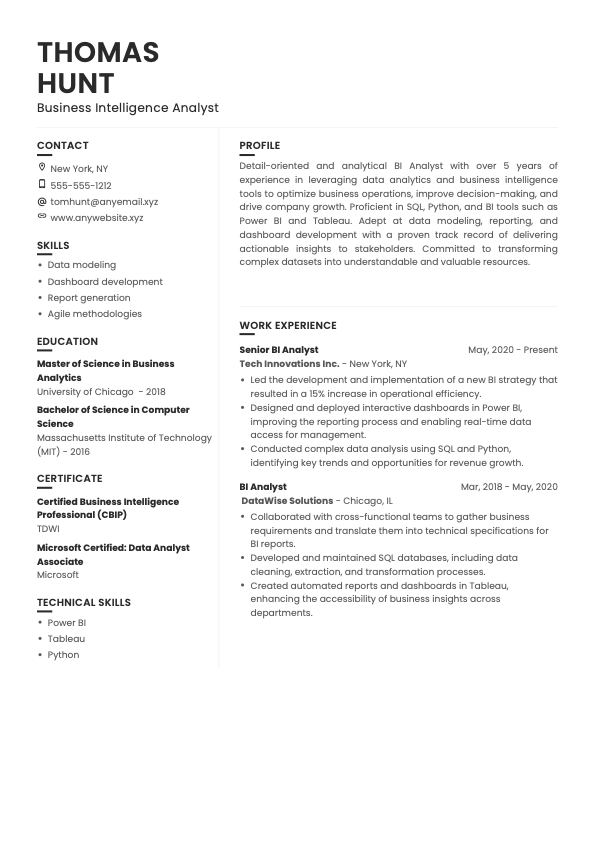
Business intelligence analyst is projected to be one of the most in-demand skills in the next decade. Here’s a guide to sculpting your resume that emphasizes your unique skills and accomplishments to set you apart from the competition as a Business Intelligence Analyst.

"Diligent Business Intelligence Analyst with over 5 years of experience in predictive modeling, data processing, and advanced analytics. Proficient in transforming business challenges into actionable data-driven insights to stimulate growth and operational efficiency. Documented success in delivering robust analyses leading to tangible improvements in customer satisfaction and revenue growth."
Tips for Writing a Strong Resume Summary
Keep it brief: Aim for 3-4 sentences, ideally between 50 – 100 words.
Focus on your most relevant experiences and achievements.
Incorporate keywords from the job description to align with the employer’s expectations.
- Implemented data visualization techniques to streamline reporting processes, resulting in a 25% increase in data-driven decision-making efficiency.
- Utilized SQL queries to extract actionable insights from complex datasets, contributing to a 15% improvement in forecasting accuracy.
- Collaborated with cross-functional teams to develop interactive dashboards, enhancing stakeholder engagement and facilitating data-driven discussions.
Best Practices for Experience Section
Use reverse chronological order, starting with your most recent role.
Include company names, job titles, and dates of employment.
Emphasize accomplishments that align with the job responsibilities.
Technical Skills
Soft Skills
Tips for Skills Section
Use bullet points for clarity and readability.
Tailor your skills to match the job description.
Prioritize the most relevant skills for this role
Tips for Including Courses and Certifications
Creating a professional resume doesn’t have to be daunting. With the right guidance and tools, you can craft a resume that captures your strengths and impresses hiring managers. Use the Careerpilot resume builder and explore our suggested resume templates to get started. With our intuitive platform, you’ll have a polished and customized resume in no time. Start building your resume today and take the first step toward your next career opportunity!
We use cookies to enhance your experience. By continuing to visit this site, you agree to our use of cookies. Not consenting or withdrawing consent, may adversely affect certain features and functions.